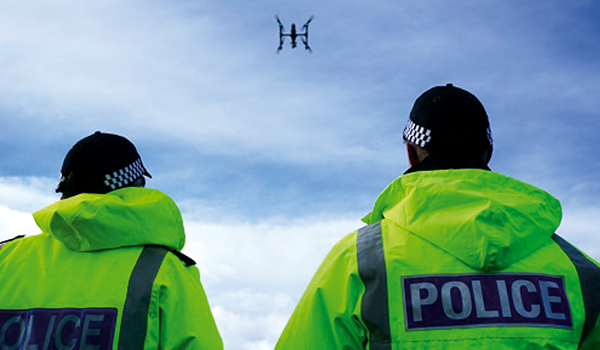E-learning benefits frontline policing at Devon and Cornwall
Devon and Cornwall Police has reported substantial deliverable and administration savings through an e-learning package that allows officers to further their skills base when using the Airwave service.

Devon and Cornwall Police has reported substantial deliverable and administration savings through an e-learning package that allows officers to further their skills base when using the Airwave service.
Airwave Academy was rolled out to Devon and Cornwall Police between October 2010 and September 2011. The e-learning software allows officers to complete their training while on shift, meaning that they can complete the handset modules at their own pace.
During this period, 2,596 officers logged onto the system and spent close on 4,000 hours completing the eight training modules. The report defined the potential cost avoidance savings for two years would have been £262,786.
According to Tim Bishop, Airwave development and services manager at Devon and Cornwall Police: When an officer joins the force their initial training on the use of the Airwave service is conducted face-to-face which, according to user surveys, is still the best way to introduce the service. However, considering that we have been using the Airwave network for seven years, it could mean that some of our officers have had no follow-up training since 2005.
He added: We have a responsibility to continue training our officers, which is why in 2009 we looked at the benefits of using an e-learning package.
A report found the Academy e-learning package could generate huge deliverable and administration savings.
Officers need not take time out from their shiftwork and there are no costs associated with travelling in order to complete the training, said Mr Bishop. Officers have commented positively about the content covered, the way it is delivered and the benefits they have enjoyed.
The eight training modules focus on seven core areas: direct mode, transmit inhibit, changing talk groups, status messages, defective handsets, emergency button, gateway functionality and engineering screens. Each module was followed by a knowledge reassessment, and the report was able to demonstrate that there was a 20 per cent knowledge improvement after an average of 40 minutes training.
During this period, we also recorded a 13 per cent rise in the use of status messaging, which can, in part, be attributed to the status messaging module. We have also seen a 62 per cent increase in the use of the emergency button, which has been significantly influenced by the knowledge increase indicated in the report, said Mr Bishop.
The importance of ongoing training was further highlighted during the 2011 summer riots, when officers were brought into the affected areas and were required to change talk groups, understand the different aspects of interoperability and use universally-accepted Airwave speak during communications.
We know that the ability for officers to operate the handsets effectively increases their confidence and improves their performance. This enables them to meet their policing commitments to the public and improve the service Devon and Cornwall provides, added Mr Bishop.


